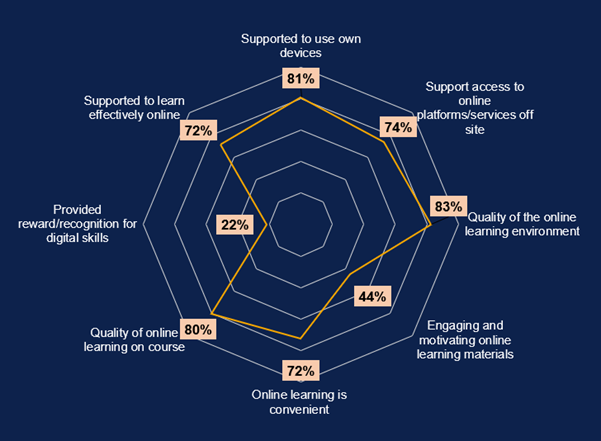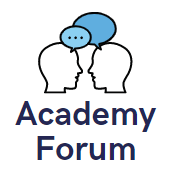
As leader of our PGCTHE programme, I keep an eye out for resources to help staff teach effectively. These include webinars, podcasts, online toolkits, publications and more. Topics include active learning, online/blended teaching, accessibility/inclusion, and effective learning design based on cognitive science. Below I’ve listed items that came to my attention in the past week. In the interest of clarity, our policy is to show the titles and descriptions in the language of delivery.
Online events and webinars
- 6-8/9/2022 Association for Learning Technology (ALT), Annual Conference (hybrid online and in person)
- 7/9/2022 Transforming Assessment, Poor feedback and what we can do about it
- 7-8/9/2022 (in-person at University of Lincoln) RAISE Network: Focused on Research into Student Engagement, RAISE Annual Conference 2022 – Student as Producer: Origins and Impact
- 19-20/9/2022 International Federation of National Teaching Fellows (IFNTF), REshaping Teaching Excellence: Pandemic and the New Now
- 22/9/2022 University of London Centre for Distance and Online Learning, Extended reality and the future of education
- 26/9/2022 TILE Network, Access is not Inclusion: Strategies for Supporting Inclusion and Diversity in Higher Education
- 28/9/2022 UDL UK and Ireland Network, Institution-wide adoption of accessible, inclusive and equitable education
- 5/10/2022 Transforming Assessment, Using individualised assessments to counter contract cheating
- 14-21/10/2022 UWE Bristol Higher Education Pedagogies, Policy and Practice Research Network (HEPPP), Exploring expertise in teaching in higher education: The artistry of teaching
Resources and publications
- Bali, M. & Cormier, D. (1/9/2022), Online Learning in a Hurry Guest Episode 8: Third Places for Ongoing Community Building (6-minute video recording plus activity resources), OneHE
- Bell, R., Blake, J., Cooke, A., & Malik, I. (9/2022), Transition Resource (toolkit for new university students with short video clips), University of Manchester Institute of Teaching and Learning/University of Manchester Library
- Boud, D. & Bearman, M. (27/8/2022) The assessment challenge of social and collaborative learning in higher education, Educational Philosophy and Theory
- Brown, S. (8/2/2021), Education Myths: takeways and questions from the researchEd guide, Mostly Clear Thinking: Crystallising Thoughts on education, RE, staff wellbeing, theology and more
- Bruff, D. (n.d.), Agile Learning Derek Bruff’s blog on teaching and technology
- Cervantes, M. V. & Inlow, A. R. (2022), Navigating Challenges and Teaching Through Lived Experiences As Graduate Student Instructors, Teaching and Learning Inquiry 10 (August)
- Chappell, S. (29/7/2022), What works to tackle inequalities in student mental health?, Advance HE News + Views
- Contract Cheating Working Group for the London and South East Academic Integrity Network (10/2021), Contract cheating detection for markers: checklist
- Davies, J. P. & Pachler, N. (2018), Teaching and Learning in Higher Education: Perspectives from UCL, UCL IoE Press
- Matthews, K. (n.d.), Feedback and Assessment Network (FAN), Institute for Teaching and Learning Innovation, University of Queensland
- Nicol, D. (2022), Turning Active Learning into Active Feedback, Introductory Guide from Active Feedback Toolkit, Adam Smith Business School, University of Glasgow, resource shared on National Teaching Repository
- Rivoire, A. & Jaffrey, A. (2019), Viewpoints Workshop Toolkit, Assessment and Feedback (downloadable cards), Viewpoints Curriculumn Design Workshop Resources
- University of Manchester Library Student Team (16/5/2019), Top Ten Tips: Group Work (blog post and 2-minute audio recording)
- University of Strathclyde (2007), Assessment and Feedback Principles: Rationale and formulation, Re-engineering Assessment Practices in Higher Education
Other
- Subscribe to SEDA’s mailing list for email discussions about educational development and emerging teaching practices. This is one of the sources I use when identifying useful material for the Roundup.
- Follow University of Birmingham’s Higher Education Futures institute HEFi on Twitter for daily posts with links to pedagogical literature and more. This is one of the sources I use when identifying useful material for the Roundup.
- Join the #LTHEchat on Twitter Wednesday nights for one hour of lively discussion about learning and teaching in HE.
Please see the Staff Training booking page for training offered by the LTEU and other Aberystwyth University staff. I hope you find this weekly resource roundup useful. If you have questions or suggestions, please contact our team at lteu@aber.ac.uk. You may also wish to follow my Twitter feed, Mary Jacob L&T.




